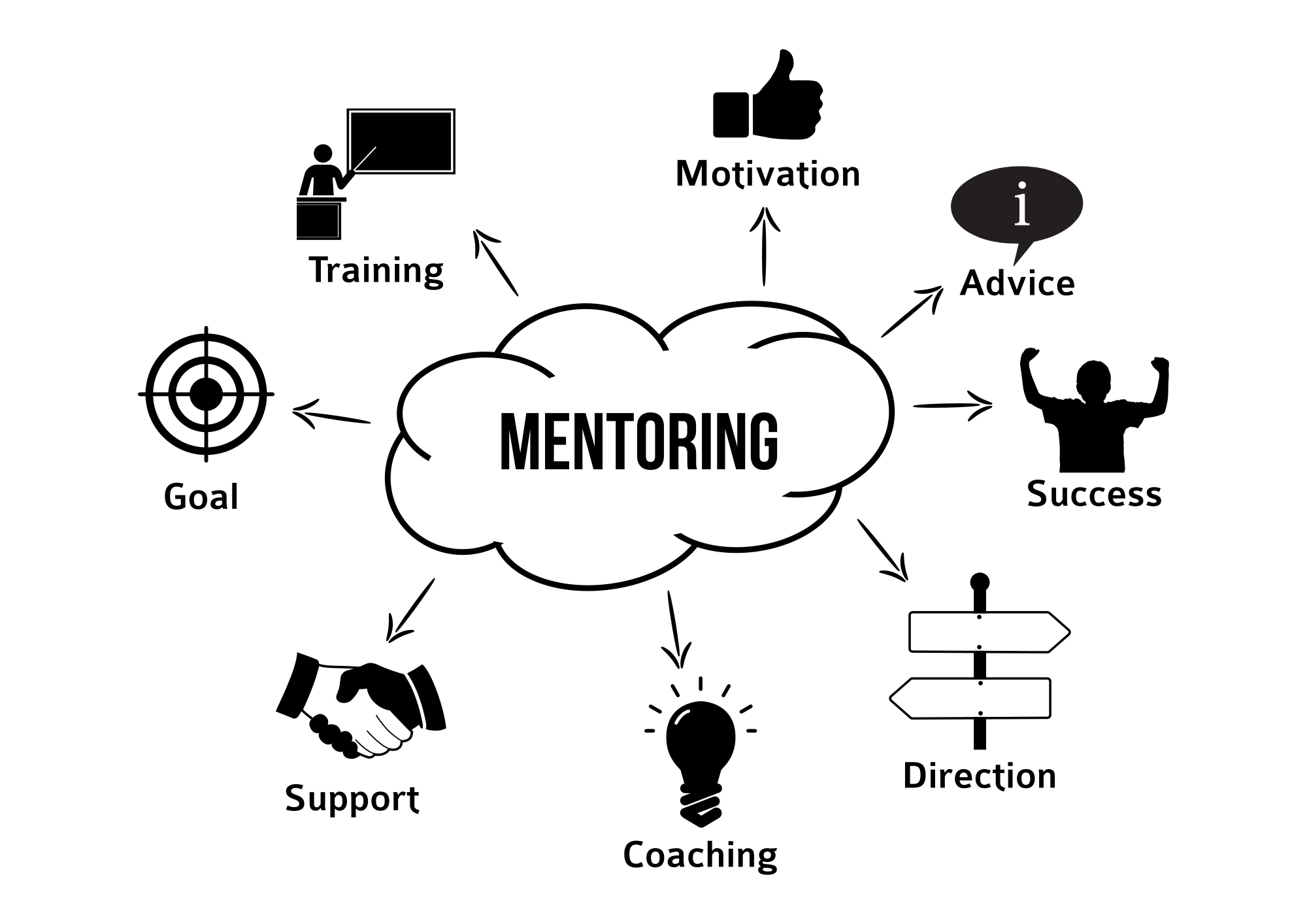Everyone who wants to build their career needs a mentor, whether they’re an entrepreneur, in the corporate world, or in the social sector. Mentorship can be a driving factor in your entrepreneurial growth.
NICEorg hosted an Aarohana session on Mentoring on 23rd July 2021 with Manoj Kumar, Sanjay Prasad, and Abhishek Mukherjee. Watch the session here. Read the precis of the talk below.
How Does Mentoring Differ From Advising and Consulting?
Consulting pertains to a specific scenario where someone comes in, looks at a particular problem, does a gap analysis, fixes it, and carries on. In an advisory, people reach out to specific advisors if they have a knowledge gap in an area, and it’s usually a fixed project.
A mentoring relationship goes deeper and is usually a long-term commitment. A mentor gets involved in every aspect and provides holistic guidance. A mentor aims to shield the entrepreneur from past mistakes and handholds them through their journey.

When Must Entrepreneurs Look for a Mentor?
Entrepreneurs look for mentors when they encounter roadblocks or gaps they don’t know how to fill. Some may seek a mentor at the ideation stage when they have a proposal but don’t know how to set up a business. The pre-revenue phase is usually the most considerable time of risk for a startup. Some others, when unsure of the following steps, and others when they want to transform their enterprise and dream bigger.
With the increasing number of entrepreneurial success stories published in the media, first-time entrepreneurs need a realistic comprehension of the landscape for their work. This is where mentors can give practical insights early in the journey. They can help the entrepreneur figure out when to raise capital, how to find co-founders, ways to find the right investors, and more.
How to Find the Right Mentor?
Finding the right mentor involves an element of matchmaking. It often takes a few rounds of discussions and one-on-one meetings to solidify the mentor-mentee relationship.
Entrepreneurial forums in relevant fields are excellent resources. One can get in touch with many people by pitching their ideas to multiple potential mentors. It can be daunting to ask someone for mentorship, but the worst thing someone can say is no.
An entrepreneur could also talk to people in their network and let them know that they’re looking for mentorship. Word-of-mouth and referrals are among the most effective ways to find a mentor.
What to Look For in a Mentor?
An element of openness and transparency is critical. The mentee must be able to share their pain and the obstacles they’re facing.
The mentor and mentee must ensure they are the right fit for each other. For example, an executive running a multi-million dollar balance sheet may ask a pre-revenue startup founder for quarter-on-quarter numbers, leading to a disconnect. Thus, finding a good match and assessing a mentor’s openness and willingness to help is crucial.

What are the Benefits of Multiple Mentors Vs. One?
When an entrepreneur is in the early stage of their business, the learning curve is high, and they might require more than one mentor to address different aspects. The entrepreneur must be clear about what they need from each mentor.
Entrepreneurs must be mature and self-aware to determine the suitability of the mentor for each sphere. A higher number of mentors means more people to bounce ideas off but could also lead to increased conflicts. The final decision always lies with the entrepreneur.
Important: If multiple mentors are present, they must be made aware of each other’s roles. This reflects trust and transparency.
How Do You Begin the Mentorship Process?
A mentorship is the meeting of minds, and the two parties should choose the best route for them.
In the case of informal mentoring, the focus is placed on trust building. Since it is a long-term commitment, the process is not structured and goal-oriented, and the mentor takes the form of a life coach.
With a formalized agreement, both sides have skin in the game. The mentor is aware that his time and effort will be compensated. If the company is not yet revenue generating, this is usually in the form of equity. If the enterprise is generating money, the mentor is generally paid a fee for their time. In this case, both parties set concrete goals and expectations.

What Do Mentors Look For in a Mentee?
There are three main characteristics a mentor looks for in a mentee.
- Commitment – how much time the entrepreneur is devoting to their business, and whether it’s more than a side hustle or hobby
- Passion – how driven the entrepreneur is about their idea and belief in it.
- The merit of the idea – whether the idea will create value for its stakeholders
The essential ingredient for a business is the founder’s determination to succeed. While the coach can guide, the final win is only due to the player’s execution.
Keeping the Mentor-Mentee Relationship in Check
Once the relationship with the mentor is established, the entrepreneur must keep an eye out for the commitment the mentor is willing to give. If the mentor repeatedly cancels promised meetings or is unable to find time, it might be a sign that the fit isn’t right.
The entrepreneur must also constantly check whether their vision aligns with that of the mentor. If there is a mismatch, conflicts arise, and the outcome will not be fruitful. The mentor mustn’t have an ego and be open to contradictory viewpoints.
Image Credit: bptrends.com
Dealing With Disagreements During Mentorship
In mentor-mentee relationships, conflict resolution must be carried out on factual grounds, where both parties agree to disagree. Mentors learn as much from their mentees as the mentees learn from their mentors.
The mentor might suggest a pivot if the entrepreneur’s revenue ideas or market strategies aren’t working. In this case, it is not necessary for the mentee to blindly follow their advice. One must cross-question the mentor for examples of scenarios where such a pivot has worked and then make an informed decision. This prevents emotion from seeping into the relationship.
Navigating a Situation When the Mentor is a Bad Fit
Recognizing a stop-loss situation requires self-awareness and cognizance of the situation. If the entrepreneur realizes that something is not working, they must not unnecessarily carry it forward.
However, a mentorship should not be judged just by 1-2 meetings. However, if both parties have invested enough time, and results are not seen, they must call it quits, and a mature conversation needs to occur.
Conclusion
A mentor is the entrepreneur’s greatest critique and biggest advocate. An entrepreneur’s mind is often buzzing with brilliant ideas, but there might be cacophony. A mentor serves as a great sounding board. He helps remove the noise and create a symphony. This relationship takes time to build; thus, mentorship is a long-term commitment.







